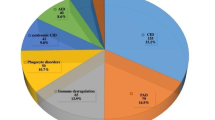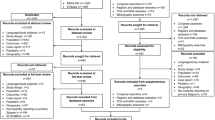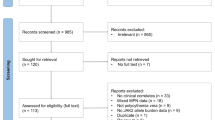Abstract
Background
We undertook a study to determine the impact of Wiskott Aldrich Syndrome (WAS) and X-linked thrombocytopenia (XLT) and their therapies upon the health-related quality of life (HRQOL) of patients and their families.
Materials and Methods
We undertook a survey of patients and their families, who self-identified as having either WAS or XLT. We assessed the PedsQL™ 4.0, the parent proxy form, and the family impact module. These results were compared with normative data from previously published reports.
Results
Sixty-eight patients (29 patients completed both the PedsQL™ 4.0 and the parent proxy form; 21 completed only the PedsQL™ 4.0; and 18 completed only the parent proxy form) were included. In contrast to patient-reported outcomes, parents of patients who had a bone marrow transplant (BMT) reported that their children had better QOL scores compared with those who did not (82.6 vs. 73.3, p = 0.023). The QOL of patients vs. previously published normative data showed decreases in patient scores for psychosocial health (72.62 vs. 86.58, p = < 0.001), emotional functioning (69.91 vs. 82.64, p = < 0.001), social functioning (77.55 vs. 91.56, p = < 0.001), and school functioning (70.46 vs. 85.67, p = < 0.001). The family impact study revealed deficits in emotional, social, and cognitive functioning, communication, and worry.
Conclusion
These results show that patients with WAS/XLT are significantly impacted with respect to QOL. BMT offered a better QOL for patients according to parents, but not as reported by the patients. Future studies should incorporate QOL to provide more data and a better understanding of outcomes for long-term survivors and decision-making regarding BMT.
Similar content being viewed by others
References
Ochs HD. Mutations of the Wiskott Aldrich syndrome protein affect protein expression and dictate the clinical phenotypes. Immunol Res. 2009;44(1–3):84–8.
Bosticardo M, Maragoni F, Aiuti A, Villa AN, Grazia Roncarolo M. Recent advances in understanding the pathophysiology of Wiskott-Aldrich syndrome. Blood. 2009;113(25):6288–95.
Imai K, Nonomaya S, Ochs HD. WASP (Wiskott Aldrich syndrome protein) gene mutations and phenotype. Curr Opin Allergy Clin Immunol. 2003;3(6):427–36.
Sullivan KE, Mullen CA, Blaese RM, Winkelstein JA. A multiinstitutional survey of the Wiskott Aldrich syndrome. J Pediatr. 1994;125(6 Pt1):876–85.
Filopovich AH, Stone JV, Tomany SC, et al. Impact of donor type on outcome of bone marrow transplantation for Wiskott Aldrich syndrome: collaborative study of the International Bone Marrow Transplantation Registry and the National Marrow Donor Program. Blood. 2001;97(6):1598–603.
Ozsahin H, Cavazzano-Calvo M, Notorangelo LD, et al. Long-term outcome following hematopoietic stem cell transplantation in Wiskott Aldrich Syndrome: collaborative study of the European Society for Immunodeficiencies and European Group for Blood and Marrow Transplantation. Blood. 2008; 111(1):439–445.
Shin CR, Kim MO, Li D, Bleesing JJ, Harris R, Mehta P, et al. Outcomes following hematopoietic stem cell transplantation for Wiskott Aldrich syndrome. Bone Marrow Transplant. 2012;47(11):1428–35.
Elfeky RA, Furtado-Silva Chiesa R, et al. One hundred percent survival after transplantation of 34 patients with Wiskott Aldrich syndrome over 20 years. J Allergy Clin Immunol. 2018;142(5):1654–6.
Moratto D, Giliani S, Bonfim C, Mazzolari E, Fischer A, Ochs HD, et al. Long-term outcome and lineage chimerism in 194 patients with Wiskott-Aldrich syndrome treated by hematopoietic cell transplantation in the period 1980-2009: an international collaborative study. Blood. 2011;118(6):1675–84.
Grootenhuis MA, Koopman HM, Verrips EGH, Vogels AGC, Last BF. Health–related quality of life problems of children aged 8-11 years with chronic disease. Dev Neurorehabil. 2007;10:27–33.
Varni JW, Limbers CA, Burwinkle TM. Impaired health related quality of life in children and adolescents with chronic conditions: a comparative analysis of 10 disease clusters and 33 disease categories/severities utilizing the Peds QL™ 4.Generic Core scales. Health Qual Life Outcomes. 2007;5:43, 1–15.
Barlogis V, Mahlaoui N, Auquier P, Fouyssac F, Pellier I, Vercasson C, et al. Burden of poor health conditioning and quality of life in 656 children with primary immunodeficiency. J Pediatr. 2018;194:211–7.
Varni JW, Seid M, Rode CA. The Peds QL™ 4.0: measurement model for the pediatric quality of life inventory. Med Care. 1999;37:126–39.
Varni JW, Seid M, Kurtin PS. Peds QL™ 4.0: reliability and validity of the pediatric quality of life inventory™ version 4.0 generic core scales in healthy and patient populations. Med Care. 2001;39:800–12.
Varni JW, Burwinkle TM, Katz ER, Meeske K, Dickinson P. The PedsQL in pediatric cancer: reliability and validity of the Pediatric Quality of Life Inventory Generic Core Scales. Multidimensional Fatigue Scale, and Cancer Module Cancer. 2002;94(7):2090–106.
Varni JW, Limbers CA, Burwinkle TM. Parent proxy-report of their children’s health-related quality of life: an analysis of 13,878 parents’ reliability and validity across age subgroups using the Peds QL™4.0 Generic Core Scales. Health Qual Life Outcomes. 2007;5:2 1–10.
Varni JW, Sherman SA, Burwinkle TM, et al. The Peds QL™ Family Impact Module: preliminary reliability and validity. Health Qual Life Outcomes. 2004;2:55, 1–6.
Panepinto JA, Hoffman RG, Pajewski NM. A psychometric evaluation of the Peds QL™ Family Impact Module in parents of children with sickle cell disease. Health Qual Life Outcomes. 2009;7:32.
Ware Je: SF-36 health survey: manual and interpretation guide Boston, MA The Health Institute; 1993.
Fairclough DL, Cella DF. Functional Assessment of Cancer Therapy (FACT-G): non-response to individual questions. Qual Life Res. 1996;5:321–9.
Upton P, Lawford J, Eiser C. Parent-child agreement across child health related quality of life instruments: a review of the literature. Qual Life Res. 2008;17:895–913.
Cole T, McKendrick F, Titman P, Cant AJ, Pearce MS, Cale CM, et al. Health related quality of life and emotional health in children with chronic granulomatous disease: a comparison of those managed conservatively with those that have undergone hematopoetic stem cell transplant. J Clin Immunol. 2013;33:8–13.
De la Morena MT, Leonard D, Torgerson TR, et al. Long term outcomes of 176 patients with X-linked hyper-IGM syndrome treated with or without hematopoietic cell transplantation. J Allergy Clin Immunol. 2017;139:1282–92.
Acknowledgments
The authors would like to thank patients and families who participated in this study. The authors are grateful to the advice of Kathy Ruccione RN and Wendy Packman, and Robertson Parkman, MD, and Kenneth Weinberg, MD, for critical review of the manuscript.
Funding
BL and MJC received financial support from NIH NIAID AI U54-082973.
Author information
Authors and Affiliations
Contributions
AS, MC, and BL analyzed and interpreted the data.
RS, SI, CS, CM, MHA, and MC designed the study.
BL and ZY provided statistical analysis.
Corresponding author
Ethics declarations
Conflict of Interest
The authors declare that they have no conflict of interest.
Disclaimer
The opinions expressed are those of the authors and do not represent the position of the National Institute of Allergy and Infectious Diseases, the Office of Rare Diseases Research, the National Center for Advancing Translational Research, and the National Institutes of Health, of the US Government.
Additional information
Publisher’s Note
Springer Nature remains neutral with regard to jurisdictional claims in published maps and institutional affiliations.
Rights and permissions
About this article
Cite this article
Shah, A.J., Sokolic, R., Logan, B. et al. Quality of Life of Patients with Wiskott Aldrich Syndrome and X-Linked Thrombocytopenia: a Study of the Primary Immune Deficiency Consortium (PIDTC), Immune Deficiency Foundation, and the Wiskott-Aldrich Foundation. J Clin Immunol 39, 786–794 (2019). https://doi.org/10.1007/s10875-019-00689-2
Received:
Accepted:
Published:
Issue Date:
DOI: https://doi.org/10.1007/s10875-019-00689-2




